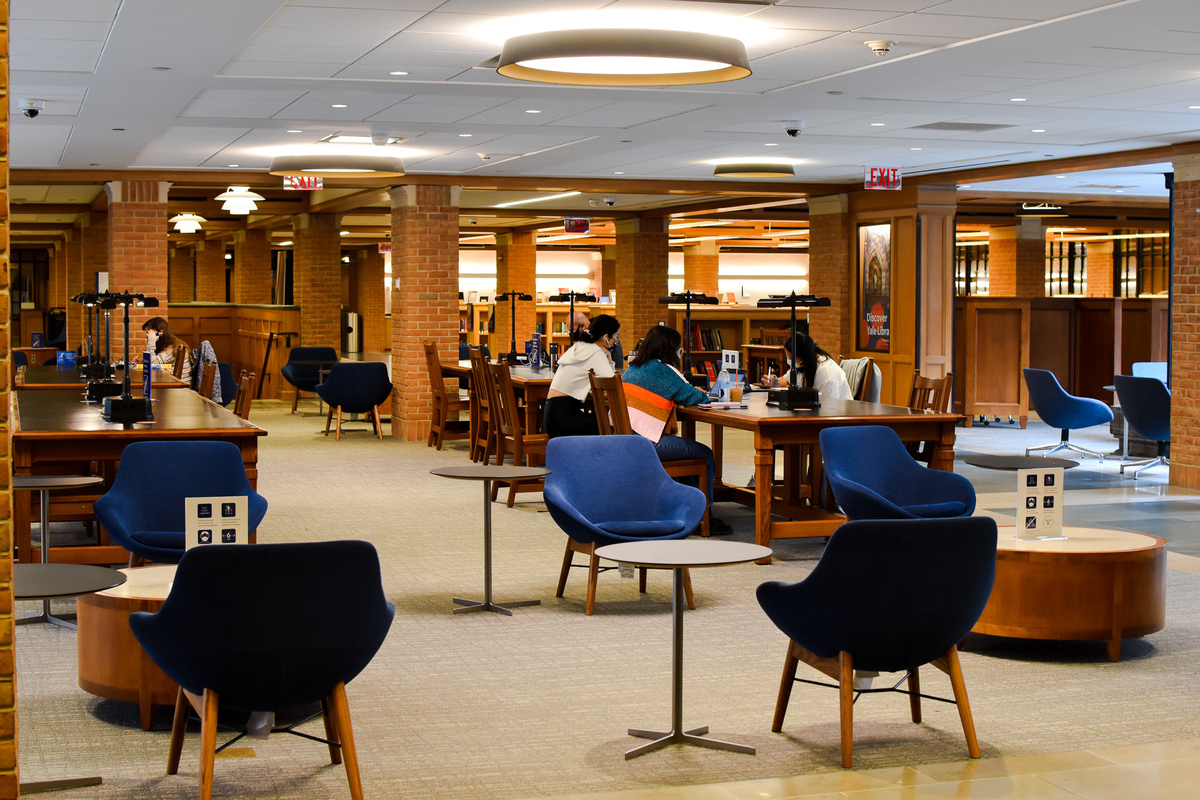Students complain about noisy libraries
Students voice complaints that library spaces are too loud as others openly converse and eat in study spaces.

Karen Lin, Photo Editor
After a year and a half of remote learning, students are now returning to the 15 University libraries across campus to read, study and socialize. But with increased visitors, some have raised concerns about the noise levels in the libraries.
Popular libraries for students include Bass Library, Sterling Memorial Library and various residential college libraries. There, students must balance their desire to have a silent learning environment with competing desires to eat and converse in the libraries. Some students told the News that the noise is unbearable and that it taints the productive environment of the libraries.
“Libraries, in particular, the Jonathan Edwards residential college library, [are] quite noisy,” Jaden Gonzalez ’25 said. “Some students treat it like Commons as they catch up in the middle of what should be silent cubicles. There are even signs put up reminding students to be quiet, emphasizing the fact that they are libraries and should be treated as so.”
Other students, however, believe that the noise is not necessarily a big issue. Ashley Reyes ’25 said that she has not witnessed anything “intolerable,” although she has heard stories from friends about people disrupting the library’s expectation of silence.
Some residential colleges have issued special notices in their newsletters about how to be respectful in a library setting, given the increased noise complaints from students. Jonathan Edwards College sent its students an infographic emphasizing that the Taft Library carrels are meant to be “silent.”
“If someone is making too much noise or intentionally being disruptive, give them the death stare,” Reyes said. “It should be a communal action, and we can gain strength in numbers. This seems a bit harsh, but it must work in silencing those who seem to forget that libraries are supposed to be for focused work.”
Reyes added that she feels libraries should be “quiet enough” to not need noise-cancelling headphones.
Students noted that, while there should be an overall standard of quietness, they feel some libraries should be more silent than others.
Gonzalez said that Bass, Sterling and the graduate school libraries should be “quiet at all times” but that the residential college libraries should have more flexible noise requirements. Zoe Groh ’25 agreed that Bass should be a silent space.
“The common areas of Bass Library are not designated for study groups and chatter about assignments,” Groh said. “Students who want to talk in large groups should reserve a room or go into a more appropriate environment. It is difficult to write a high-stakes paper when a whole athletic team is conversing next to you.”
Bass Library was built in 1971.







